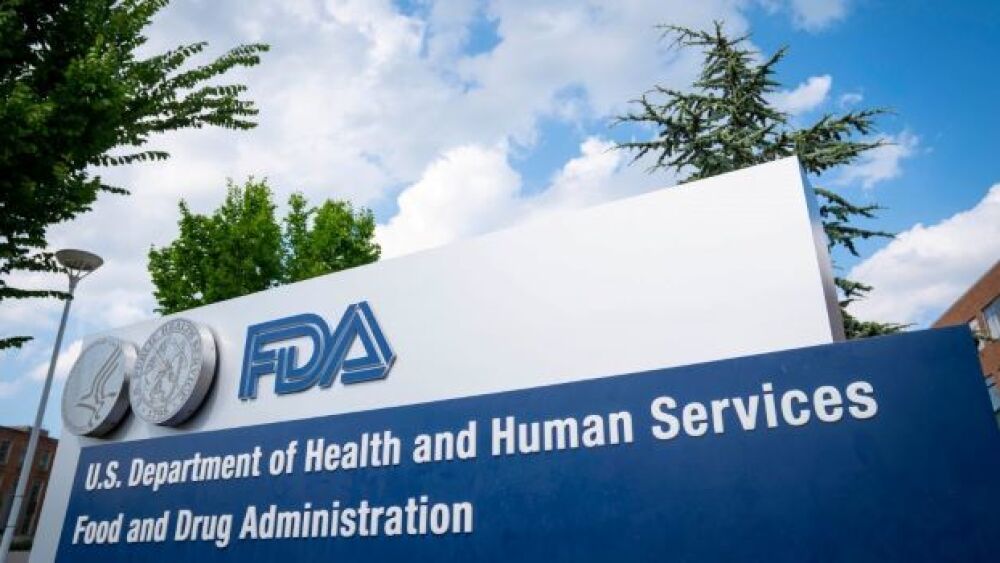Several biopharma companies celebrate the U.S. Food and Drug Administration’s approval for clinical trials involving therapeutics for cancer treatment.
Sarah Silbiger/Getty Images
Several biopharma companies celebrate the U.S. Food and Drug Administration’s approval for clinical trials involving therapeutics for cancer treatment, including Sonnet BioTherapeutics and Adagene Read on for more.
Sonnet Receives IND Clearance for Advanced Solid Tumor Treatment
Sonnet BioTherapeutics evolves into a clinical biopharmaceutical company after the FDA approved its Investigational New Drug (IND) application for its therapeutic SON-1010.
SON-1010 is a proprietary version of interleukin-12 (IL-12) configured using Sonnet’s Fully Human Albumin Binding (FHAB) technology intended to treat advanced solid tumors in adult oncology patients non-small cell lung cancer and head and neck cancer. IL-12 is an essential cytokine in promoting anti-tumor activity, making it a prime target for emerging oncological therapies.
The upcoming Phase I clinical trial will occur in the second quarter of 2022. The trial will be a multiple ascending dose study designed to evaluate the safety and tolerability of SON-1010 as primary endpoints. Secondary endpoints of the study include assessing pharmacokinetics, pharmacodynamics, immunogenicity and anti-tumor activity.
Adagene Proceeds with Phase Ib/II Trial of Antibody-Based Cancer Therapy
Adagene announced that the FDA has granted it clearance to proceed with a Phase Ib/II clinical trial of its anti-CTLA-4 monoclonal antibody, AD126, in combination with pembrolizumab, a humanized antibody used in cancer immunotherapy.
The therapeutic combination aims to treat patients with advanced/metastatic solid tumors by targeting the tumor microenvironment. AD126 has been developed with SAFEbody technology to address safety and tolerability challenges associated with antibody therapeutics. The technology uses precision masking to shield the binding domain of the biologic therapy, allowing for tumor-specific targeting of antibodies when activated in the tumor microenvironment.
Adagene anticipates dosing the first patients soon with primary endpoints of the trial being to evaluate the combination therapy’s safety and tolerability and determine the recommended Phase II dose.
AIM ImmunoTech Moving Forward with Phase II Study for Pancreatic Cancer
AIM ImmunoTech is moving forward with its Phase II clinical trial of Ampligen (rintatolimod) after the FDA lifted its clinical hold on AIM’s IND application. Ampligen is intended for the treatment of locally advanced pancreatic cancer.
Ampligen is a double-stranded RNA (dsRNA) product candidate that protects and stimulates the innate immune system to mobilize different immune cells to attack cancerous cells. AIM ImmunoTech has previously reported that treatment with the therapeutic in pancreatic cancer patients led to longer survival and enhanced immune cells.
The Phase II trial is planned to be a randomized, open-label, controlled, parallel-arm study comparing the efficacy of Ampligen versus a no treatment control group in patients that have been treated with FOLFIRINOX, a combination treatment of chemotherapy drugs. AIM anticipates enrolling 90 patients.
Wugen Doses First Participant in CAR-T Cell Therapy Trial
Wugen is moving its candidate WU-CART-007 into Phase I/II clinical trials. WU-CART-007, a CAR-T cell therapy, is intended to treat relapsed or refractory T-cell acute lymphoblastic leukemia/lymphoblastic lymphoma (R/R T-ALL/LBL).
WU-CART-007 is the first off-the-shelf, allogeneic CAR-T cell therapy addressing T-cell malignancies in the United States. It received orphan drug designation from the FDA in treating acute lymphoblastic lymphoma. The therapeutic is designed to address technological issues of using CAR-T cells to treat certain malignancies.
The Phase I portion of the trial will evaluate the safety and tolerability of a single dose after patients undergo lymphodepleting condition therapy, a chemotherapy process in which the number of T-cells is decreased in a patient’s body to make room for CAR-T cells. Phase I will also assess the recommended Phase II dose, pharmacodynamics and cellular kinetics.





